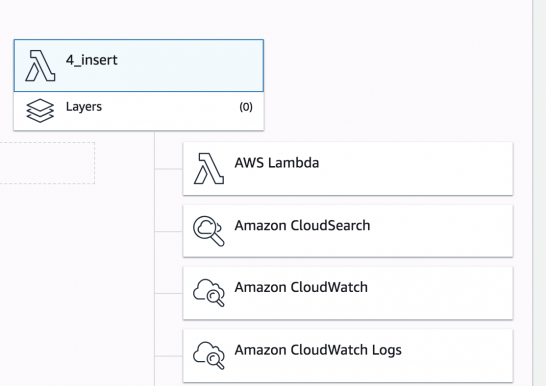
- Export cloudwatch logs to s3 using lambda python how to#
- Export cloudwatch logs to s3 using lambda python software#
We will be able to track a wide variety of helpful metrics, includingĬPU usage, network traffic, available storage space, memory, and performance counters.ĪWS also provides access to system and application logs, and custom alarms that provides near real time notification when specific metrics appear in the logs, or when certain events take place, such as low disk space.ĭashboards can also be created to display graphs and statistics. Make sure to choose "no" when the wizard prompts you to store the configuration in AWS Systems Manager Parameter Store.Amazon CloudWatch provides robust monitoring of our entire AWS infrastructure, including EC2 instances, RDS databases, S3, ELB, and other AWS resources. Instead we'll have the standard logs uploaded. Note that in step 4 you don't have to rewrite the log files as JSON, so instead add the config line below. Here is a tutorial which pushes Apache weblogs to CloudWatch.
Export cloudwatch logs to s3 using lambda python how to#
If you already have this, perhaps from an AWS Lambda function, you can skip the rest of this section, which discusses how to push web server log access log files from an EC2 instance to CloudWatch Logs. You need to have some logs in CloudWatch Logs before they can be queried by Athena. Set up that account in your AWS ~/.credentials file.

Create a S3 bucket to which you have write access.How to bring CloudWatch Logs to Athena # Before you start #

With this set up, you will want to set the retention period for the CloudWatch Logs to a very low value to save money. In the end, if you have a lot of logs already going to CloudWatch Logs but want the advanced querying and integration capabilities of Athena, it makes sense to copy the logs from CloudWatch Logs to S3. And it may take substantial work to write to S3. In addition if you use other AWS services like Lambda which have tight integrations with CloudWatch Logs, it takes no time at all to log to CloudWatch Logs. If you are planning to write an application that already leverages the AWS SDK or API, then adding on one logging call (or more than one) may be easy.īut if you have an existing application that expects to log to a known location on the filesystem, using the CloudWatch agent, which is entirely independent of your application, will be easier than retrofitting AWS API calls into your code. For a simple application, this may make sense. You could, of course, directly push your log files to S3. Why not push logs directly to Amazon S3? # You can transform the log files on the way to S3 if you need to ( enriching the log files by calling out to other APIs, for example).Logfiles can be in formats other than JSON and Athena can still query them.According to this 2018 article, with 1TB of logs/month and 90 days of retention, CloudWatch Logs costs six times as much as S3/Firehose. Over the long term, especially if you leverage S3 storage tiers, log file storage will be cheaper on S3.You might want this to correlate events between log files and other data sources. Athena provides the ability to do joins across any tables that are backed by S3 or other data sources include those that support JDBC and ODBC.Unlike the CloudWatch Logs querying interface, which is non standard, Athena provides a SQL interface.If CloudWatch Logs provides a querying interface, why would you want to make the log files queryable by Athena? There are a number of reasons:

Why would you want to bring log files into Athena? # Part of CloudWatch Logs is CloudWatch Logs Insights, which allow you to query JSON logs that contain, via the CLI or a web user interface.
Export cloudwatch logs to s3 using lambda python software#
There's also a software agent that is easily installable on Linux and Windows servers that can be configured to monitor one or more log file locations and upload the logs to CloudWatch Logs. You can have AWS services or custom applications, like Amazon EC2 instances, AWS CloudTrail, Route 53, or even on premises, and system scripts all push log files into a centralized repository. What is Amazon CloudWatch Logs? #Īmazon CloudWatch Logs is a service that acts as a central repository for logging. There are a couple of ways to make CloudWatch Logs data available for Athena, but first, let's look at CloudWatch Logs a bit closer. (There are some AWS services which output logs that Athena can directly query.) CloudWatch Logs stores the ingested log files in its own data repository not available to Athena. Athena needs to have data in a structured format (JSON, something that can be parsed by a regexp or other formats more here) with each record separated by a newline. Is there a way to have the two of them work together? Amazon CloudWatch Logs are a great way to collect and gather logs from a variety of sources. Amazon Athena provides a powerful mechanism for querying structured data.


 0 kommentar(er)
0 kommentar(er)
